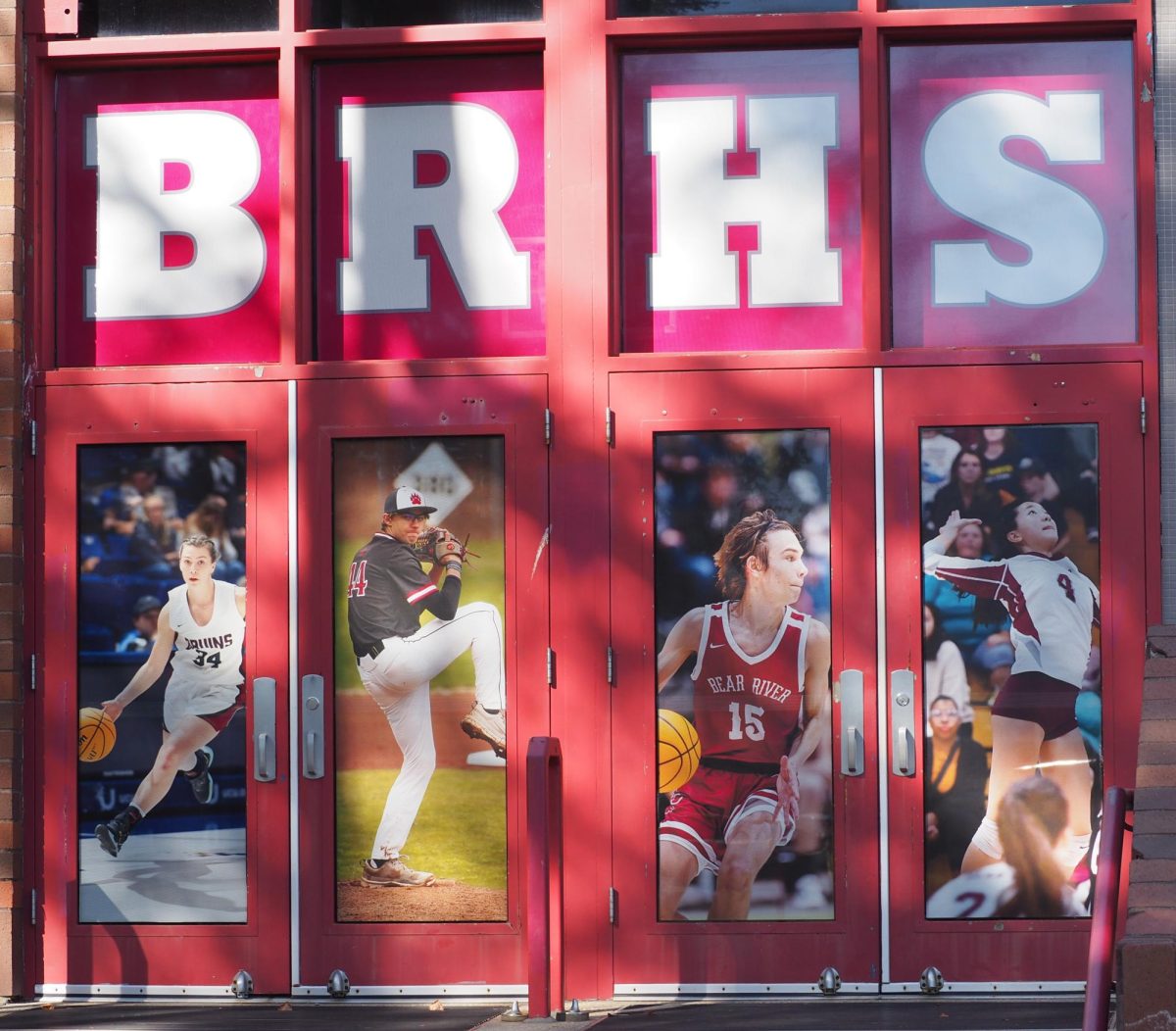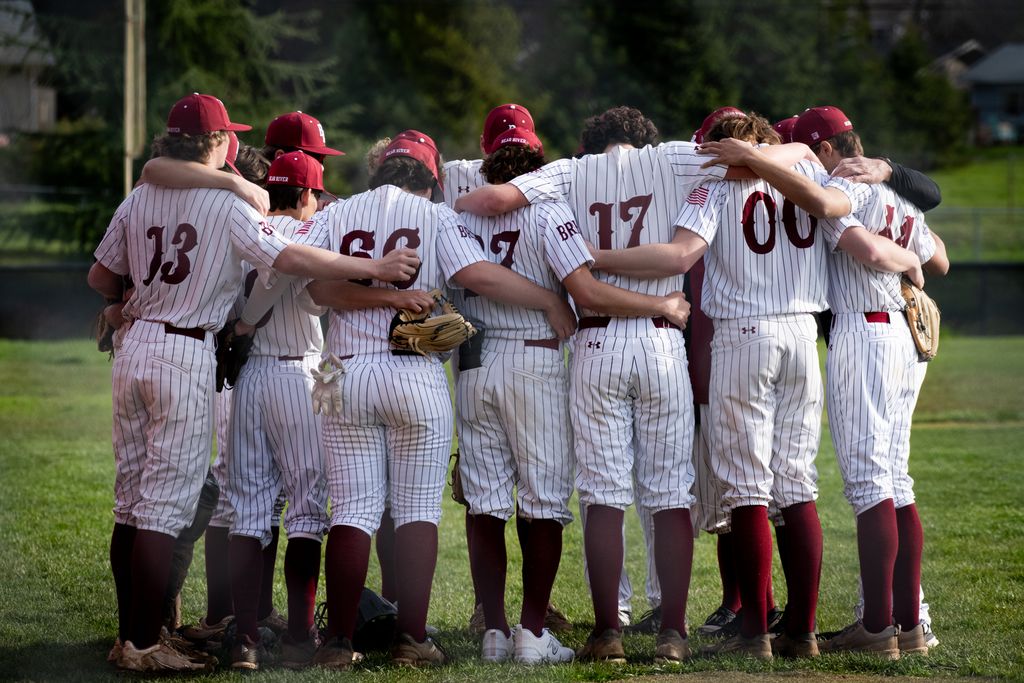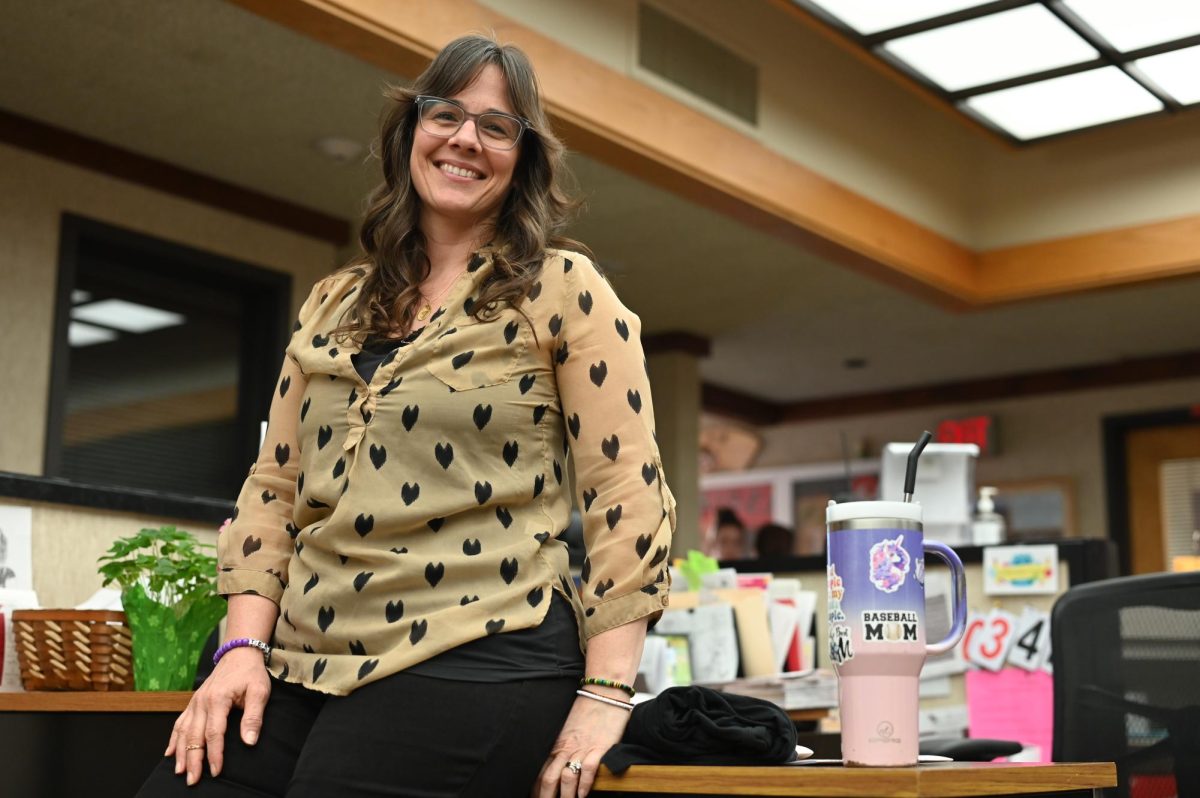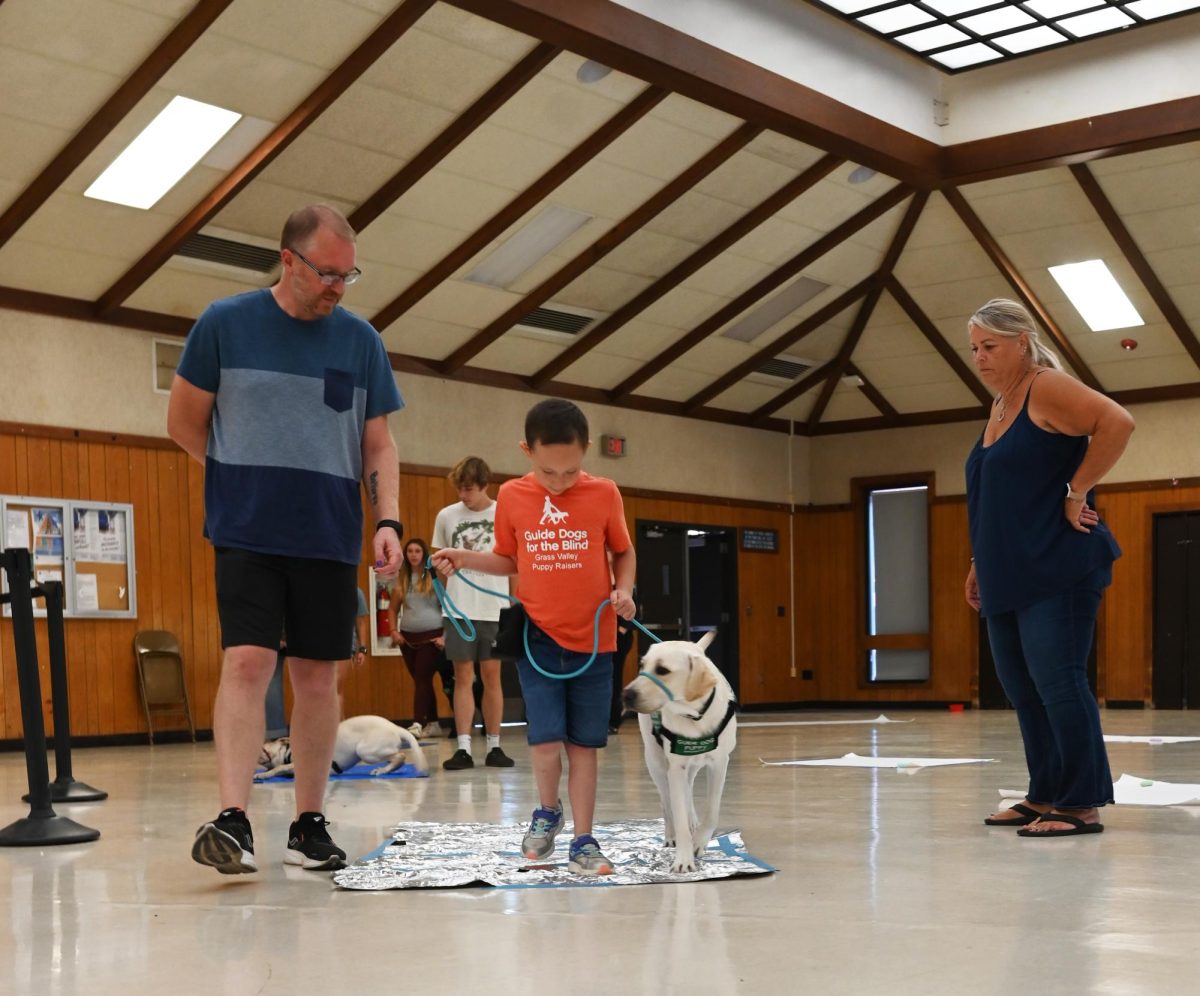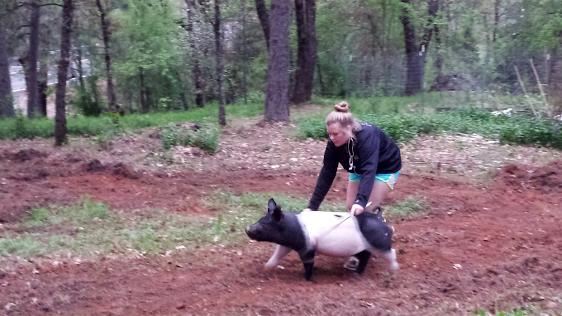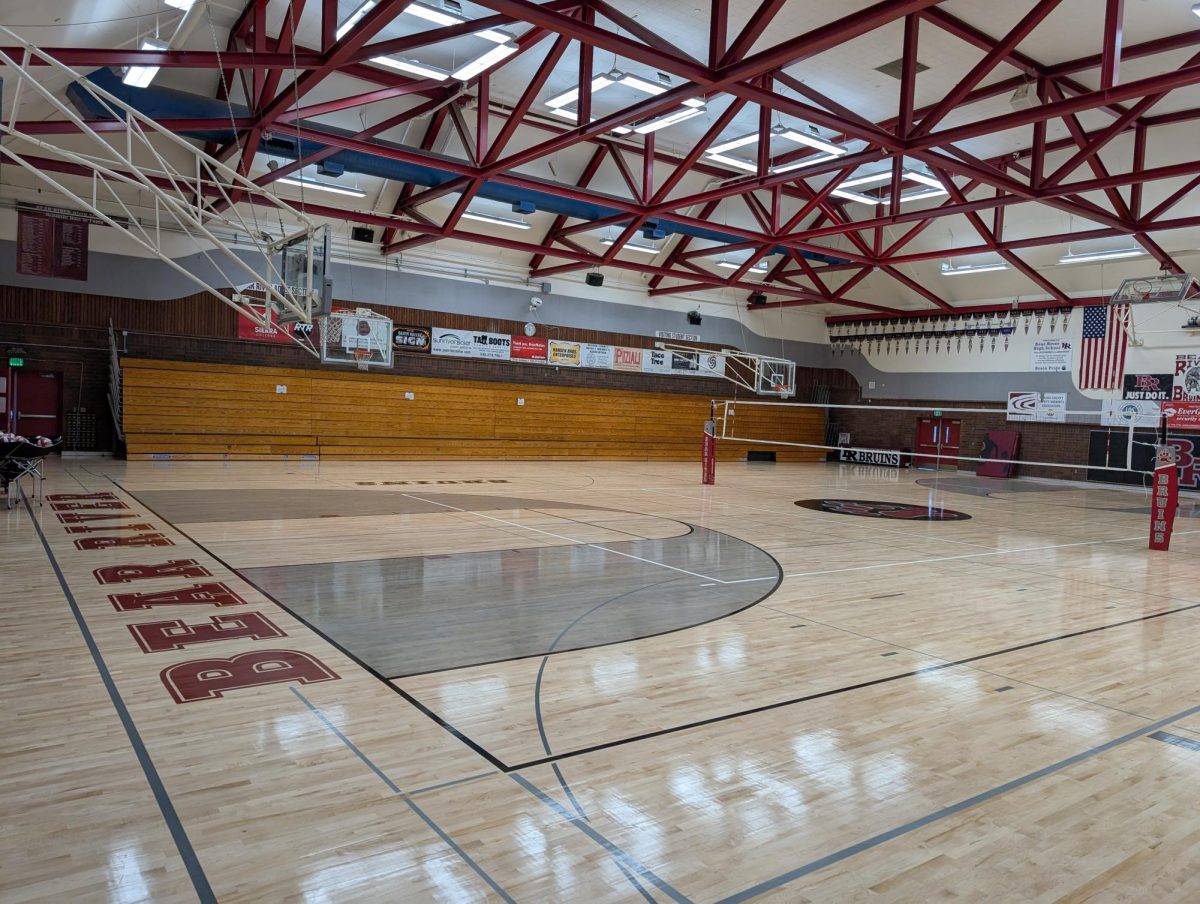From a young age, many Bruins have raised local market animals, everything from lambs to pigs, to be shown and sold at the Nevada County Fair.
“I raise pigs for both county and state fair, as well as run the Jackpot Circuit where I get to show all over the west coast,” said Junior Becca Reese. “I started raising animals for fair when I was 7 years old, showing through 4-H. I started showing when I was a little kid so I started out with chickens but I moved up to pigs when I was 9. Pigs are something that I’ve grown to love showing. Again, I started showing large animals when I was 9. At that time I already had cattle but I wanted to mix it up, so I picked up 2 pigs and went from there. It’s taken me a few years to really get a knack for how to show and start becoming successful in that area.”
Others have raised multiple different types of animals as well.
“I have raised lambs for 3 years, then turned to pigs,” said Sophomore Connor McGehee. “This will be my third year with pigs. I also raise dairy cows, which I have been doing for 4 years now. I also raised chickens and pygmy goats for fair for 2 years each. I have basically shown animals for the past 10 years on and off. I chose lambs originally because I thought they were cute, but the last year I did them, my lamb kept getting sick. Between that, and having pigs at home. I switched to pigs. As for the cows, well, my mom wanted one.”
While some have raised multiple animals, others have stuck to just one.
“This is my second year raising an animal (lamb),” said Junior Katelyn Lorenzo. “I picked this animal because I asked my friends that have raised animals for a long time ‘What animal would be the best to start out raising for the fair for a kid that has little-to-no knowledge about livestock?’ and they told me a lamb. I loved it so I am going to continue.”
Raising an animal takes a lot of effort and commitment according to some.
“To raise this animal means a lot of commitment,” said McGehee. “You give up a good portion of summer, but it’s worth it for the check and the learning experience.”
Bruins believe that daily care is a lot of work.
“My daily care for these animals starts out with getting up early enough in the morning so that it’s still cool out to ensure the pigs will eat, because if it’s too hot they get lethargic and won’t really want to eat,” said Reese. “So I go out to the barn and mix up feed. I show at a very competitive level so they are each on different diets that I create alongside with my feeding manager. They go all day mainly sleeping because it’s so hot but, every few hours, I go out and spray them down with the hose… Because fun fact, pigs don’t sweat so they need help cooling down late in the evening once it has cooled off. I work with each pig for at least 30 minutes on walking and being sure they are cooperative with being able to show. After that, I mix up more feed and they get dinner.”
McGehee agreed with the level of effort it takes to carry out the daily care of his animal.
“You have to feed and water every day, twice a day, clean pens, shear, or clip hair or wool, and much more,” said McGehee.
Raising livestock animals has taught Bruins many lessons.
“Raising livestock teaches kids super valuable life lessons that we don’t get in school, such as the responsibility of caring for another life as well as how to manage funds having to do with that project,” said Reese. “Throughout the years I’ve learned how to budget my spendings, how to communicate with others because in this industry connections are super important.”
McGehee agreed that there is responsibility involved.
“I raise an animal for fair because it teaches me many things, like responsibility, respect for the animal, money management, among many other life skills,” said McGehee.
Some believe that there are many traits you can gain from raising livestock.
“Qualities that you gain are responsibility, reliability, leadership, work experience, determination, grit, persistence, and toughness,” said 2018 Bruin Alumna Catherine Renner.
Showing a market animal can be tough, but Bruins feel like there is a way around getting attached.
“To give up the animal, at first, is difficult,” said McGehee. “I cried my first couple years with lambs, but you learn to see it coming. You have to put it in your head that this is why you raised the animal, this animal should be respected, and have a good, healthy, happy life. You should understand that this animal is meat. With that being said, you should still work with your animal, and spend time on them. You shouldn’t neglect them because you don’t want to get attached. You just need to separate friends and food. I have found that having other animals at home to bond with helps me because I can love them, and not get as attached to my market animal.
Lorenzo agreed with McGehee.
“I like to think of it as one bad day in their life and that they are feeding others,” said Lorenzo.
Those who raise these animals feel like there is a purpose behind it.
“I raise my market animal to have the absolute best life possible and be sure that the family this animal ends up feeding knows where their meat came from, as well as knowing that the animal was given an amazing life,” said Reese. “I’ve grown up on a ranch and knowing that I can raise a product that I know where it comes from, know that it was given the best life it could possibly have, as well as knowing what has gone into that animal to get it to that point is important to me. These animals all have a purpose and that is to teach kids lessons as well as go on to feed a family.”
McGehee saw a larger scale purpose behind raising your own market animals.
“I feel like raising your own feeder animal, or buying a market animal from the fair is actually better than buying store bought meat,” said Mcgehee. “Unfortunately, the large-scale feedlots in the agricultural industry has some practices I am not proud of. Overcrowding and many other things are way too common. When you raise your own animals for meat, you have not only better tasting meat due to lack of hormones and things, you also know that the animal was raised humanely, and was cared for well. The same goes for fair buyers. You know the animal was raised right, and you are supporting the local youth in Ag, and wonderful programs, like 4H and FFA, which teach more than just how to raise animals.”






